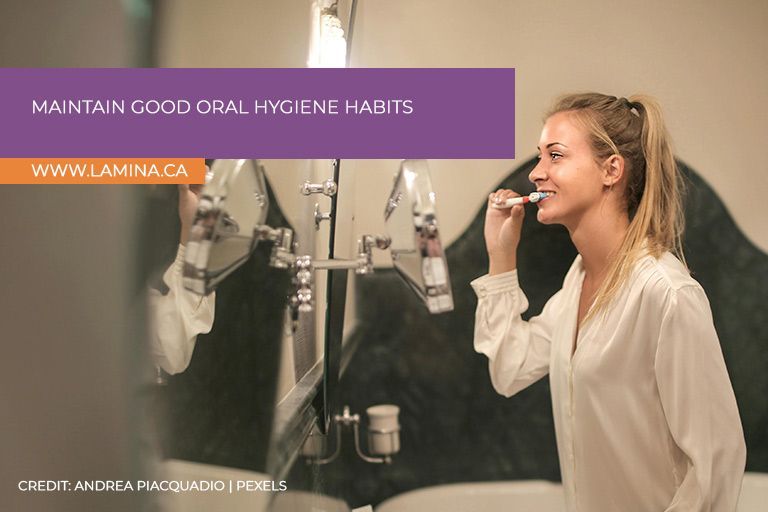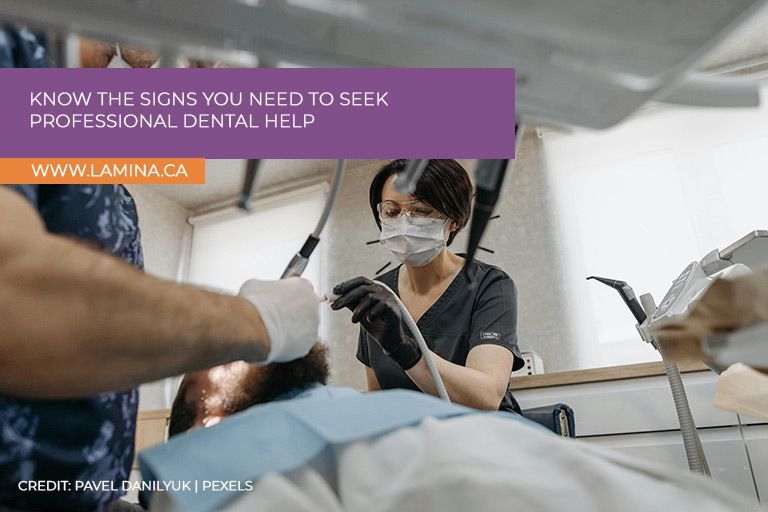Winter brings a time for cozy nights in, warm beverages, and festive treats. While this season offers plenty to enjoy, it's also crucial to prioritize your health, including your oral well-being. The colder weather can present unique challenges for your teeth, requiring some adjustments to your routine.
Let’s look at the best practices for caring for your teeth during winter, the signs that warrant a trip to the dentist, and potential solutions for financing an emergency dental visit.
Braving the Chill: Top Tips for Winter Teeth Care
- Maintain a Consistent Brushing and Flossing Routine
The foundation of good dental hygiene remains constant throughout the year. Brushing your teeth twice a day with a soft-bristled toothbrush and fluoride toothpaste is essential for removing plaque and food particles. Don't forget to floss daily, reaching between all your teeth to remove what brushing might miss. Aim for a two-minute brushing session in the morning and before bed.
Winter air tends to be drier, which decreases saliva production. Saliva is vital in that it washes away bacteria and keeps your mouth healthy. To counteract
dry mouth, consider using a humidifier at home and drinking plenty of water throughout the day. Sugar-free gum with xylitol can also help stimulate saliva production.
- Beware of Tooth Sensitivity
Cold weather can exacerbate tooth sensitivity, causing discomfort when consuming hot or cold drinks. Opt for lukewarm beverages whenever possible. Additionally, using a desensitizing toothpaste can help lessen the discomfort associated with tooth sensitivity.
- Dietary Choices Make a Difference
Winter often brings cravings for hearty soups, hot cocoa, and sweet treats. While these are okay to enjoy in moderation, be mindful of their impact on your oral health. Sugary drinks and foods can create an acidic environment in your mouth, promoting tooth decay. Focus on including plenty of fiber-rich vegetables, fruits, and whole grains in your diet. These foods not only provide essential nutrients but also help stimulate saliva production.
- Limit Teeth-Staining Beverages
Between coffee, tea, and red wine, the holidays can be a time for indulging in delicious but often staining drinks. While not entirely eliminating them is necessary, try to limit their consumption and rinse your mouth with water after enjoying them.
Chapped lips can make it tempting to pick at them, potentially introducing bacteria into your mouth. Regularly apply lip balm with SPF to keep your lips hydrated and avoid the urge to pick.
- Schedule Regular Dental Checkups
Winter is not an excuse to skip your regular dental checkups and cleanings. Maintaining a biannual schedule with your dentist allows them to identify any potential issues early on and prevent them from becoming more serious.
When Should You See the Dentist?
While maintaining a good oral hygiene routine is crucial, there are situations when professional dental intervention becomes necessary. Here are some signs that warrant a visit to your dentist:
A toothache is a clear indication that something is wrong. The pain could be caused by a cavity, infected tooth, or gum disease. Don't ignore a toothache; schedule an appointment with your dentist as soon as possible.
- Sensitivity to Hot or Cold
While some sensitivity is common during winter, persistent or severe sensitivity could be a sign of an underlying issue.
Swollen or bleeding gums are
signs of gum disease. Early intervention and treatment from your dentist are essential to prevent gum disease from progressing.
Damaged or loose teeth require professional attention. Your dentist can assess the situation and recommend the best course of action.
- Changes in Bite or Jaw Pain
If you experience any changes in your bite or jaw pain, these could be symptoms of a temporomandibular joint disorder (TMJ). Your dentist can help diagnose and manage TMJ.
- Mouth Sores that Don't Heal
Mouth sores usually heal within a week or two. If a mouth sore persists for longer, consult your dentist for diagnosis and treatment.
Funding a Dental Emergency
Unfortunately, dental emergencies can happen unexpectedly. If a dental issue requires immediate attention and you're facing financial constraints, there are options available to help you cover the cost. Here are some possibilities:
- Dental Insurance and Payment Plans
If you have dental insurance, check your coverage details to understand what procedures are covered and what your out-of-pocket expenses might be. Many dental offices also offer payment plans, allowing you to spread the cost of treatment over several months.
- Government Assistance Programs
In some cases, government assistance programs may be available to help individuals with limited financial resources access dental care. Research the programs available in your area to determine if you qualify.
There are a wide variety of personal loan services depending on your needs. Note that you may need collateral and a credit check to be approved for a personal loan.
Lamina provides a convenient and
fast online loan application process. You can quickly apply for a loan without extensive paperwork and receive a decision in as little as 30 minutes.
- Instant Online Payday Loan Alternatives in Ontario
If you need immediate funds for a dental emergency, check out
instant online payday loan alternatives in Ontario through Lamina. These alternatives often offer quicker access to funds compared to traditional bank loans. However, you need to understand the terms and conditions (which includes the interest rates and repayment options) before you commit to a loan. With the
best personal loan services in Canada, Lamina can offer more flexible repayment options and potentially lower interest rates compared to payday loans, making them a preferable choice for longer repayment periods.
Prioritizing Preventive Care
The best way to avoid costly dental emergencies is to prioritize preventive care. Regular dental checkups and cleanings, along with a consistent oral hygiene routine, can help prevent many dental problems from developing in the first place.
Protect Your Teeth This Winter







